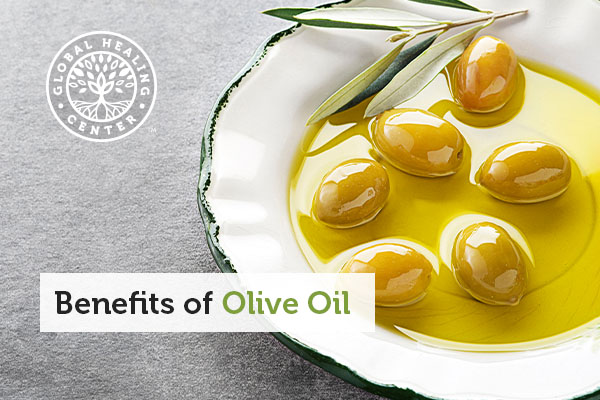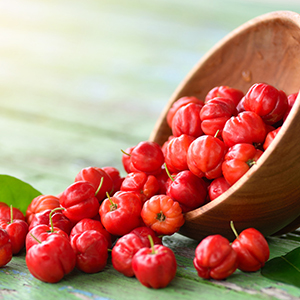
Olive oil, like wine, has been around forever. For people of the Mediterranean, it has had medicinal, even magical powers through the ages. The olive tree is considered a symbol of peace and glory.
Olives were first cultivated in the eastern part of the Mediterranean around 5000 B.C. Cultivation spread to Turkey, Greece, and Egypt before it reached southern Italy, Africa, and southern France. Italy was producing olive oil by the first century A.D.
Olive oil was used in medicines and different ointments. It was also used for nourishment and as an overall healing agent. Today, Italy, Spain, and Greece produce olive oil, and California, with its Mediterranean climate, is fast becoming a leading producer. Like wine, many different varieties of olive oil have their own unique characteristics taken from the land and weather conditions.
Consumption of olive oil in the U.S. is at an all time high, but I wouldn't be surprised if you're still confused about the differences between regular or pure olive oil and olive oil that's classified as virgin, extra virgin, and cold pressed. So, here's a quick lesson in the different types of olive oil:
Basically, these designations are the grades of oil extracted from the olive. The classifications are strictly regulated. The regulation is somewhat different according to the country of origin.
Types of Olive Oil

- Regular or Pure Olive Oil Regular or pure olive oil has been chemically refined and filtered to neutralize both undesirable strong tastes and acid content. This olive oil is of lower quality and usually the least expensive.
- Virgin Virgin means the olive oil was produced without any chemical additives, so it contains no refined oil. It has an acidity that's less than 2%, so it tastes better. Virgin refers to the fact that the olive oil has been less handled or manipulated during processing.
- Extra Virgin Extra virgin olive oil comes from the first press only and is the highest quality olive oil with perfect flavor, aroma, and balanced acidity. This olive oil is less processed than Virgin olive oil and is very delicate in flavor. It's perfect for salad dressings, marinades, and for dipping bread.
- Cold Pressed Olive Oil Cold pressed olive oil is an unregulated label description. Back when olive oil was pressed the second time using hot water and steam to extract the last drop, the heat during the second pressing took away the delicate flavors. Today, premium olive oil is cold pressed, which means the olive paste is gently warmed to room temperature to avoid losing taste and pressing is done in winter, when it's cold, to further retain flavor.
Health Benefits of Organic Olive Oil
Organic olive oil is a monounsaturated fat, and is considered a good fatty acid (high density lipoproteins, HDLs) protect against bad cholesterol, or low density lipoproteins (LDLs).
Delicious organic olive oil contains all the vitamins and nutrients of the olive fruit, and if you get a premium organic olive oil, it will taste better and have a full aroma.
- Protect You from Heart Disease [1]
- Promote Healthy Digestion [2]
- Ease the Symptoms of Ulcers & Gastritis [3] [4]
- Lower Gallstone Formation [5]
- Balance the Fatty Acids in Your Body [6]
Scientific studies show that people eating two tablespoons of virgin organic olive oil daily for one week show less oxidation of LDLs and higher levels of antioxidants in their blood [7] .
If you use extra virgin organic olive oil, you will benefit from higher levels of antioxidants, especially vitamin E and phenols, the same compounds found in grapes, because the olive oil is less processed.
7 Uses for Organic Olive Oil
- Cooking - Start using organic olive oil for cooking or as a replacement whenever a recipe calls for butter.
- Body Oil - Rub it on your body or face after washing. You don't need a lot to get great skin moisturizing benefits. You might even trying shaving with it or using it to remove makeup.
- Control Hair Frizz, Dry Cuticles & Nails - Just comb a drop of organic olive oil through your hair to control flyaways and frizz. Rub it into nail cuticles and nails for a naturally polished look.
- Control a Nagging Cough or Scratchy Throat - Swallow a tablespoon to soothe a dry or irritated throat.
- Shine Stainless Pots & Pans - Organic olive oil will prevent streaking and tarnishing and naturally condition your pots and pans.
- Lip Balm - Organic olive oil is the perfect lip balm to keep chapped lips at bay. It's also great to use on your hands as a soothing hand lotion in winter.
- Bath Oil - Add a few drops of organic olive oil to the water you're running for your bath. The benefits to your skin will be obvious even after the first time you use it.
References (7)
- Covas MI. Bioactive effects of olive oil phenolic compounds in humans: reduction of heart disease factors and oxidative damage. Inflammopharmacology. 2008 Oct;16(5):216-8. doi: 10.1007/s10787-008-8019-6. Review.
- Dinnella C, Minichino P, D'Andrea AM, Monteleone E. Bioaccessibility and antioxidant activity stability of phenolic compounds from extra-virgin olive oils during in vitro digestion. J Agric Food Chem. 2007 Oct 17;55(21):8423-9. Epub 2007 Sep 20.
- Odabasoglu F, Halici Z, Cakir A, Halici M, Aygun H, Suleyman H, Cadirci E, Atalay F. Beneficial effects of vegetable oils (corn, olive and sunflower oils) and alpha-tocopherol on anti-inflammatory and gastrointestinal profiles of indomethacin in rats. Eur J Pharmacol. 2008 Sep 4;591(1-3):300-6. doi: 10.1016/j.ejphar.2008.06.075. Epub 2008 Jun 27.
- Concepción Romero, Eduardo Medina, Julio Vargas, Manuel Brenes, Antonio De Castro. In Vitro Activity of Olive Oil Polyphenols against Helicobacter pylori. Journal of Agricultural and Food Chemistry. 2007 January 17. 55 (3), pp 680–686 DOI: 10.1021/jf0630217.
- Yago MD, González V, Serrano P, Calpena R, Martínez MA, Martínez-Victoria E, Mañas M. Effect of the type of dietary fat on biliary lipid composition and bile lithogenicity in humans with cholesterol gallstone disease. Nutrition. 2005 Mar;21(3):339-47.
- Amy E. Binkoski PhD RD, Penny M. Kris-Etherton PhD RD. Balance of Unsaturated Fatty Acids Is Important to a Cholesterol-Lowering Diet: Comparison of Mid-Oleic Sunflower Oil and Olive Oil on Cardiovascular Disease Risk Factors. Journal of the American Dietetic Association. 2005 July. vol. 105 issue 7, pages 1080-1086.
- Gimeno E, Fitó M, Lamuela-Raventós RM, Castellote AI, Covas M, Farré M, de La Torre-Boronat MC, López-Sabater MC. Effect of ingestion of virgin olive oil on human low-density lipoprotein composition. Eur J Clin Nutr. 2002 Feb;56(2):114-20.
†Results may vary. Information and statements made are for education purposes and are not intended to replace the advice of your doctor. If you have a severe medical condition or health concern, see your physician.







